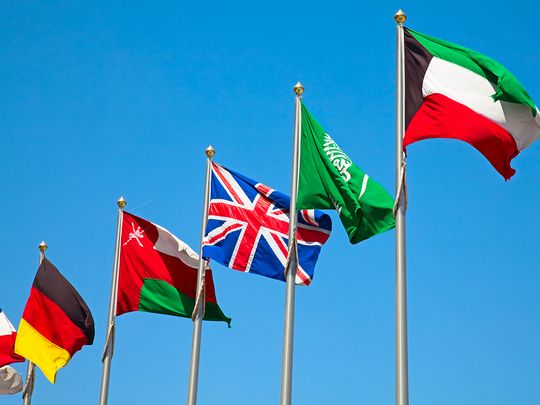
The GCC countries and the UK have been seeking a free trade agreement ever since the latter’s exit from the European Union after that Brexit vote. Although talks had progressed to the final stages, they experienced a slowdown due to reasons specific to each party.
Recently, these FTA talks have seen a revival and there is keenness to speed up overcoming of some remaining obstacles, especially those related to the liberalisation of financial services and the free flow of investments, which are usually considered the most complex of the more than 70 areas subject to negotiations, including trade in goods and trade in general.
A new round of negotiations between the GCC and UK is to take place soon to resolve all outstanding issues and then move on to the long-awaited free trade agreement that can be of such benefit to both parties.
Post-Brexit scenario
Britain has lost the freedom to move goods and trade within the EU, its top trading partner. The post-Brexit Britain has seen an urgent need to find an alternative through the signing of free trade agreements after the EU imposed duties on imports from Britain.
Since its EU exit, the UK has already signed several FTAs, such as with Australia, and is seeking more, particularly with the GCC, which boast thriving markets and substantial purchasing powers.
The GCC countries need the densely populated British consumer markets and its established status as a financial and commercial investment location. That also means developing their exports further with one of their most important trading partners historically.
The GCC nations’ focus on benefiting from FTAs to develop their high technology and AI sectors via joint projects are a vital part of this equation, and which will contribute to supporting economic growth in the Gulf nations.
Britain thus holds significant importance, with bilateral trade between the GCC and the UK reaching $77 billion, according to Greg Hands, Minister of State for Trade Policy in the British Department of Business and Trade. The substantial growth in recent years is attributed in part to Britain's newfound freedom from trade restrictions imposed by the EU on certain GCC goods.
Divert investments from EU?
The financial services and investment sectors are of great importance to the GCC economies. And Gulf investments in the British banking and real estate sectors are considered one of their largest such anywhere in the world, and they need more such facilities without costing them huge sums from fees and taxes. The FTA will support the volume of these investments and allow for optimum returns for GCC institutions, including sovereign funds.
The prospective signing of this agreement is expected to trigger a shift in future Gulf investments from EU countries, driven by the desire to escape high duties and taxes imposed on foreign investments – as well as the discriminatory practices against Gulf goods.
This is expected to yield various positive outcomes, extending to mutual benefits in various sectors, such as in air links and tourism. Particularly noteworthy is Britain's initiative to introduce new facilities for Gulf citizens, exemplified by a multi-use electronic visa valid for a two-year period starting February 1.
The anticipated gains require the GCC and UK to make certain concessions and deal with them in a professional spirit. And well away from any other considerations related to internal affairs or the policies of each party, which had hindered the signing of similar agreements with some other countries and economic blocs.
It is imperative for them to let all such matters remain within recognised boundaries so that they can reach a consensus that serves the interest of both and achieve the desired gains from the FTA.









